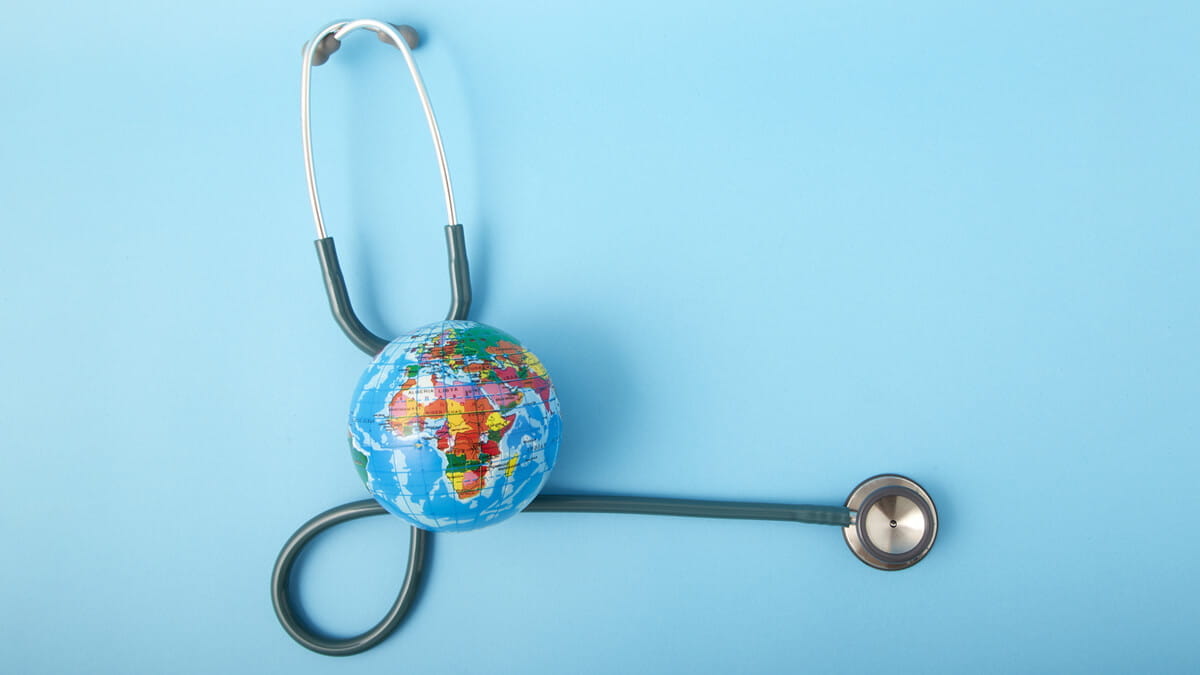Nurses are on the front lines of healthcare, helping individuals overcome illness and lead healthier lives. It’s an often intimate, one-on-one job. So why should you, as a nurse, need to learn about the broad and seemingly impersonal topic of global health?
Because the global can quickly become the personal.
On their global health reference page, the U.S. government’s Office of Disease Prevention and Health Promotion (ODPHP) provides information on why everyone—but particularly why healthcare workers—should care about global health. The ODPHP reference page is one of the many resources studied by MSN nursing students enrolled in Walden’s Role of the Nurse Leader in Population Health course.
On the reference page, the ODPHP lays out exactly why global health matters, even on the local level. The ODPHP writes:1
Global health plays an increasingly crucial role in both global security and the security of the U.S. population. As the world and its economies become increasingly globalized, including extensive international travel and commerce, it is necessary to think about health in a global context. Rarely a week goes by without a headline about the emergence or re-emergence of an infectious disease or other health threat somewhere in the world. The 2007 World Health Report notes that, “since the 1970s, newly emerging diseases have been identified at the unprecedented rate of one or more per year.” The Institute of Medicine’s 2003 report Microbial Threats to Health stresses that the United States should enhance the global capacity for responding to infectious disease threats and should take a leadership role in promoting a comprehensive, global, real-time infectious disease surveillance system.
Rapid identification and control of emerging infectious diseases helps:
- Promote health abroad
- Prevent the international spread of disease
- Protect the health of the U.S. population
The large scope of potential global public health threats is recognized in the revised International Health Regulations (IHR [2005]) with its all-hazards approach to assessing serious public health threats. These regulations are designed to prevent the international spread of diseases, while minimizing interruption of world travel and trade. They encourage countries to work together to share information about known diseases and public health events of international concern.
The ODPHP’s reference page provides just the beginning of the global health and leadership in nursing knowledge you can gain when you take Walden’s Role of the Nurse Leader in Population Health. And the class represents just one of the many learning opportunities you can take advantage of when you enroll in the Master of Science in Nursing program at Walden.
In Walden’s MSN program, you can gain the advanced nursing skills and knowledge you need to take your nursing career further, whether you want to become a nurse practitioner, nurse educator, nurse manager, or a nurse leader in any other important nursing field, such as healthcare informatics. And, at Walden, you can earn your MSN degree without disrupting your current nursing job. It’s one reason Walden is the leading provider of advanced nursing degrees in the U.S., producing more MSN graduates than any other university.2
Unlike many other nursing schools, Walden offers online education. When you earn your master’s in nursing online, you can choose when in the day you attend class, arranging the responsibilities of your master’s in nursing program around the responsibilities of your job and life. Plus, you can handle the coursework for an online MSN program from anywhere you have internet access, adding yet another level of convenience.
Global health is just one of the topics you’ll want to know for a long and successful career in nursing. Thanks to Walden, you can learn about global health and all the other topics involved at advanced levels of nursing practice.
Walden University is an accredited institution offering a Master of Science in Nursing degree program online. Expand your career options and earn your degree in a convenient, flexible format that fits your busy life.
1Source: www.healthypeople.gov/2020/topics-objectives/topic/global-health
2Source: National Center for Education Statistics (NCES) IPEDS database. Retrieved July 2017, using CIP codes 51.3801 (Registered Nursing/Registered Nurse); 51.3808 (Nursing Science); 51.3818 (Nursing Practice). Includes 2016 preliminary data.
Walden University is accredited by The Higher Learning Commission, www.hlcommission.org.




